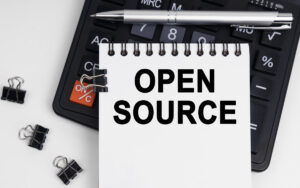Artificial intelligence (AI) has made inroads in many industries, organizations, and individuals’ lives. It can arguably be called “disruptive technology” since it is poised to upend and revolutionize how we do many things.
But today, we are focusing on AI for project management. This article details how artificial intelligence is changing project management, its upsides and downsides, and how it’s currently being applied. It also shares an immersive project management program for professionals who want to learn the latest skills and techniques to succeed.
Project management is essential because successful goods and services result from well-managed projects.
How Organizations are Using for Project Management
- Adjusting projects to different delivery methodologies. Specific AI tools can help users experiment with different project management methodologies. Users could make a Kanban chart or experiment with Agile and Waterfall software development models.
- Automation. AI tools can automate repetitive, routine tasks like generating status reports and freeing up team members for more challenging and exciting work. Project managers can use generative AI to automate typical administrative jobs, like taking meeting notes and summarizing reports.
- Communication Enhancement. AI-driven chatbots and virtual assistants can enhance communication within the project team, answering common queries, setting up meetings, and providing real-time updates.
- Cost estimation. AI can analyze past projects and current prices, then quickly and accurately estimate a project’s total costs, sometimes better than human project managers.
- Document Management. AI automates document categorization, indexing, and retrieval, making it more straightforward for project teams to find and share vital project documents and information.
- Modeling. Project managers can use AI to explore different scenario outcomes, like forecasting the results of adding more resources to a project while shortening the timeline.
- Natural Language Processing (NLP). NLP can help analyze unstructured data like project documentation, e-mails, and chat messages, and extract valuable insights and trends.
- Performance Monitoring. AI can track real-time project performance and supply visual dashboards and reports. This feature makes it easier for project managers to make intelligent, data-driven decisions.
- Personalized Recommendations. AI can track real-time project performance and supply visual dashboards and reports. This feature makes it easier for project managers to make intelligent, data-driven decisions.
- Prioritization and scheduling. AI tools can create and optimize schedules at the beginning of a project based on available resources, dependencies, and data. These tools can also adjust schedules based on resource changes, priorities, and other factors.
- Predictive analytics. In predictive analytics, the AI tool uses available data to identify factors influencing a project’s success, such as possible resource allocation or scheduling issues. These insights provide project managers with a heads-up far enough in advance so they can take steps to mitigate any problems and keep the project on track.
- Project planning. Generative AI tools can also be implemented to build project plans, with especially good results for routine projects.
- Quality Control. Project managers can use AI to monitor project outputs and identify quality issues. For example, AI can automatically find and report coding errors in software development.
- Risk management. AI algorithms analyze many different data sets to identify potential threats to project success. Additionally, an increasing number of project management tools have advanced AI enough to spot risks and offer risk mitigation strategies.
- Resource allocation. AI capabilities are being increasingly employed in allocating resources. AI models can help project managers assign the right people to the right tasks by analyzing past data alongside information on the current project’s needs and available resources.
- Scalability. AI can tackle large numbers of projects and data, making it easier to manage complex or multiple projects simultaneously.
- Task planning. Generative AI can propose action items and create agendas for follow-up meetings. These functions improve project teams’ efficiency and keep them on track.
- Time Tracking. AI can automate team members’ time tracking, reducing the need for manual input while improving accuracy. AI can also provide time allocation insights.
Also Read:What is Change Management in Project Management?
The Benefits of AI in Project Management
Here’s a handful of common ways that AI for project management makes sense and benefits organizations.
- AI can help scale project management. Project management professionals have always carried out core tasks such as developing schedules, assessing risks, modeling various scenarios, and estimating project costs. Project managers are expected to have the ability to carry out those responsibilities. Now, AI can enhance those abilities, letting managers accomplish that work at a speed and volume that would be impossible if done manually.
- AI drives efficiency. Project management tools are beginning to take over the rote, mundane, and predictable tasks that comprise a considerable portion of project management life. This convenience frees users to spend more time on higher-value, more complex work, like decision analysis and stakeholder meetings.
- AI improves accuracy. Although AI-powered project management software can’t assure 100% accuracy, AI can nevertheless avoid many human errors and deliver high accuracy in many tasks.
Also Read:What is Project Scope Management?
The Challenges of AI in Project Management
However, it’s not all sunshine and roses with AI in project management. AI technology comes with its hurdles, challenges, and obstacles. Let’s look at the primary issues and how to overcome them.
Data Availability and Quality
AI requires a large set of reliable data points on which it can be appropriately trained to function as it should. Inaccurate or biased data can result in flawed predictions, potentially jeopardizing the quality of the insights an AI-power project management tool could offer. Project data may be found in a reasonably consistent format in a small or recently created organization. Still, at larger companies that have experienced thousands of projects, this information may be incomplete, fragmented, or varied in format, structure, and quality. It takes time, effort, and investment to remedy this issue.
Organizations must engage data engineers and analysts to ensure that all input data is correct, adheres to a fundamental minimal quality standard, and exists in a format that algorithms can easily work with and make sense of. Thus, an organization’s first attempt at leveraging AI in project management is recommended to involve communication or administrative tasks. Functions requiring giant, quality data sets, such as forecasting or analysis, should be prioritized second once the project manager and the team have more experience with AI technology.
Scaled Implementation
Although project managers may use AI tools on an individual level, it’s a more significant challenge to achieve scaled impact. This desired impact can only be reached once processes have been documented, trialed, implemented, and widely adopted. Unfortunately, the learning curve for adopting new technologies can slow the acceptance of AI in project management. The best way to handle this issue is to hold introductory training sessions on both a personal and group level. This approach has shown to be a highly successful strategy for bringing teams up to speed.
Resistance to Change
Resisting change is a natural aspect of human behavior. How often have we heard, “But we’ve always done things this way!”? Despite a preponderance of hype and excitement about AI (and, for some contrarians, BECAUSE of that hype and excitement!), managers will no doubt encounter resistance when implementing AI-enhanced project management tools. Fortunately, information goes a long way toward removing uncertainty by lowering resistance to change. Project managers must practice transparency and be open to team members expressing concern, confusion, and reluctance.
Tool Limitations
One of AI’s most critical limitations in general terms and project management is its need for more human judgment and intuition. Excellent human project management has a set of “power skills,” defined as essential for success, such as communication, collaborative leadership, problem-solving, and strategic thinking. While AI is excellent at analyzing data, it lacks the means of factoring in contextual, emotional, and unforeseen circumstances, all attributes that are key to negotiation, complex decision-making, and stakeholder management. The human element is mandatory in project execution, so it is crucial to consider AI’s limitations when applying the technology to project management challenges.
AI-powered project management tools should be seen as supportive resources rather than replacing the thinking process and innovation project managers employ and foster among their teams. Remember, AI isn’t supposed to replace people; it’s supposed to help them perform their tasks better.
Also Read:How to Use Microsoft Access: A Comprehensive Guide
Do You Want Training in Project Management?
Good project management is essential to deliver quality services and goods. That’s why there’s a strong demand for skilled project managers. Whether you’re already fulfilling that role in your organization or are looking for a career change, check out this project management course.
This 24-week online course imparts valuable skills through live classes and capstone projects and is aligned with PMI-PMP® and IASSC-Lean Six Sigma.
Indeed.com reports that the average annual project manager salary is $88,474. Sign up for this online bootcamp and sharpen your project management skills. Once you earn your certification, you will be better prepared for a career in this exciting and rewarding field.
You might also like to read:
Unveiling the Project Engineer Job Description: A Comprehensive Guide
Time Management: Unlocking Your Potential through Effective Planning
Best Practices in Project Management Office: How to Achieve Peak PMO Performance
Top Resource Management Tools in 2024
Top Project Portfolio Management Tools for 2024 and How to Choose the Right One







